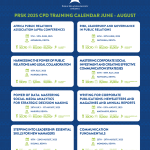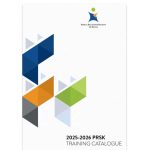How PR industry can shed off propaganda label
By Dr Wilfred Marube
In an environment where anything passes as truth, propaganda is in good company. Unfortunately, it has dragged public relations along with it, substituting it with propaganda.
This is certainly not good for the industry if nothing is done to change the perception. The PR industry appears to carry the blame of deceptive communication on behalf of politicians, and unethical marketers and advertisers.
These two terms—PR and propaganda—despite a common heritage, are mutually exclusive. Both are forms of persuasive communication.
However, public relations entail ethical communication and relationship building; while propaganda relies on lies, distortion and manipulation.
In a widely accepted definition of propaganda, Jowett and O’Donnell, in their book
Propaganda and Persuasion, define it as the deliberate, systematic attempt to shape perceptions, manipulate cognitions and direct behaviour to achieve a response that furthers the desired intent of the propagandist.
The Public Relations Society of Kenya (PRSK) defines public relations as the strategic planning, execution and evaluation of internal and external communication to enhance mutually beneficial relationships with key stakeholders and; manage reputation to meet organisational objectives.
If, therefore, propaganda is a form of persuasive communication, how do we identify it? How and where does it manifest itself? Answers to these questions can help PR industry to shed off the propaganda tag?
Propaganda is carried out by individual(s) or organisation and normalised in everyday messages and conversations that serve the interests of the propagandists at the expense of the masses.
An encounter with a message should reveal the likely beneficiary of action emanating from the content.
Critical readers are able to identify propaganda and question the information’s veracity.
Unfortunately, a good number hungrily and innocently consume propaganda, especially when articulated from credible sources such as news platforms.
Propaganda is best known for its one-sided messages that singularly advance interests of the source.
Earlier forms of public relations focused on this publicity and one-way asymmetrical model, hence the confusion with propaganda. However, this model is no longer applicable in PR.
Historically propaganda has largely been associated with utterances of politicians whose main goal is acquisition, accumulation and exercise of power.
As Ardolf Hitler once stated, “Propaganda must harp on a few simple slogans appealing to the primitive sentiments of the broad masses”.
It has traditionally been used in government, especially where the State controls channels of communication.
You may also identify propaganda from messages designed to manipulate emotional reactions at the expense of reason.
Lastly, propaganda flourishes when messages are tied to current situations, problems, challenges and struggles that people identify with.
The messages paint a world view designed to elicit fear, hate, hostility, violence, adoration or commitment among other base emotions.
Propaganda can come from politics and politicians. Do not expect any public relations effort from the politicians.
Any time you encounter a political utterance which you find insincere, dismiss it as propaganda or siasa; and not PR.
Corporate propaganda manifests itself in rogue advertisements and branding campaigns that do not adhere to professional codes.
The messages may be coated with deception and false claims; preying on the fears and anxieties of the audiences. This does not fall in the realm of PR.
Unauthenticated online content should be considered propaganda.
To shed the propaganda tag, the PR industry should encourage honest two-way communication, and constant feedback on its messages.
The industry should encourage organisations to present a wholistic picture of their institutions, with their ups and downs. It is not shortcomings that matter, but what the company does to address them.
Lastly, the industry should seek to transform and not confuse audiences. It should not prey on the uncertainties, prejudices, anxieties and fears of the audiences.
The industry should instead encourage use of messages that increase knowledge and reduce prejudices.
The writer is President of the Public Relations Society of Kenya

